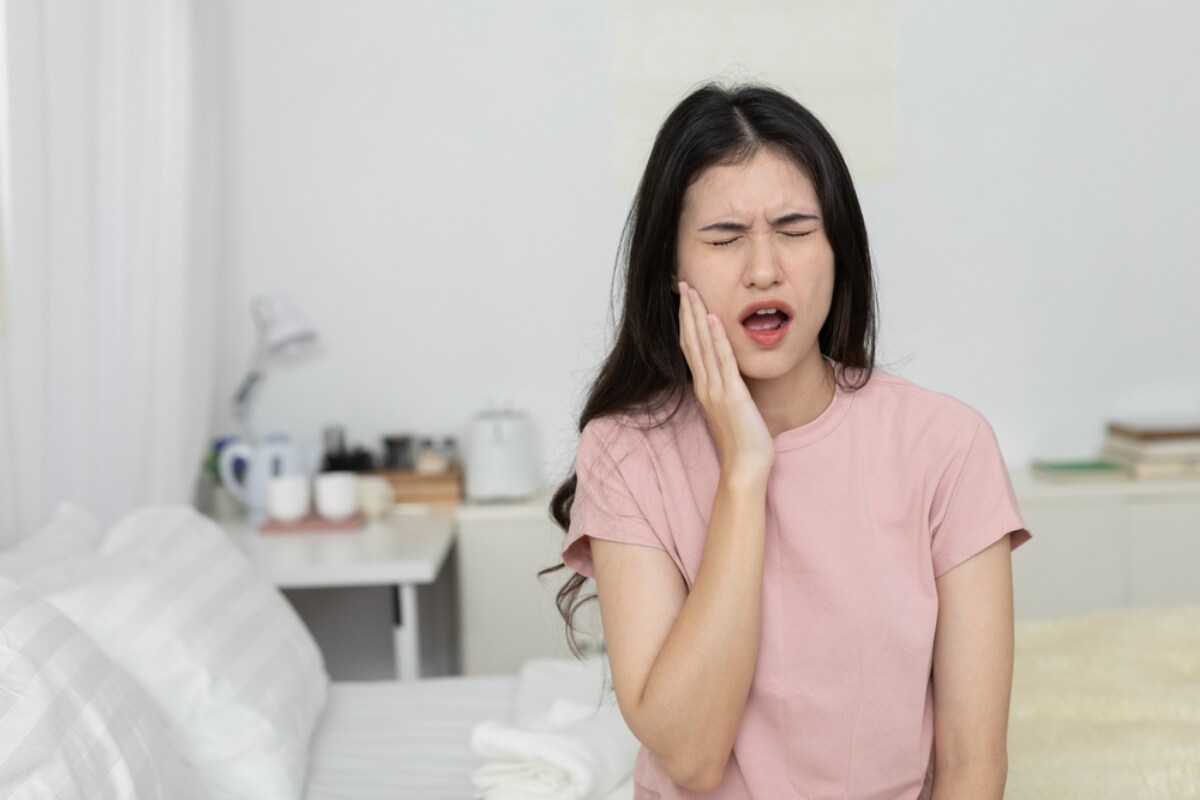Have you ever noticed that your upper teeth have an underlying dull pain that seems to be more prominent when you bend over to pick something up or when you are lying in bed? Interestingly, this uncomfortable feeling could be from your sinuses and not your teeth. Because the sinuses are located so close to the roots of the upper teeth, many individuals confuse tooth pain and sinus problems for another dental issue.
Knowing whether your pain is coming from your teeth or sinuses is important to help you determine if you need a dentist or medical provider. If you’re not certain whether your tooth pain is coming from your teeth or sinuses, then an initial consult with a dentist in Kitchener would be an appropriate first step to help sort out the specific location of the pain and guide you to the appropriate treatment.
Understanding the Connection Between Sinuses and Tooth Pain
The sinuses are air-filled spaces in the bones of the face—just above and behind your cheeks, eyes, and forehead. When they become inflamed due to allergies, infection, or a cold, they can create pressure in the upper jaw and adjacent areas.
That pressure can create what is described as sinus-related tooth pain, which can mimic a toothache. The maxillary sinuses—just above your upper molars and premolars—are specifically known to cause this type of pain.
How Can Sinus Cause Tooth Pain
Can sinus problems cause tooth pain? Yes! When your sinuses are congested or inflamed, the tissues swell and put pressure down on the roots of your upper teeth, which creates a deep achy feeling that can feel like tooth pain.
Some common sinus-related causes of tooth pain seen in the practice include:
- Sinus infection (sinusitis): This can be caused, most of the time, from a bacteria or virus that inflames your sinuses and causes pressure.
- Seasonal allergies: These can lead to chronic sinus congestion that will cause intermittent tooth pain.
- Cold or respiratory infection: Blocked nasal passages and increased mucus can irritate sinus cavities.
- Changes in air pressure: If you fly or dive, sometimes your sinus pressure may temporarily increase and cause discomfort
If you’ve experienced a toothache from a sinus infection, you’re not alone! I’ve had many patients point out that the pain is typically located in multiple upper teeth instead of just one, and that can be a clue that sinus-related drain pain is likely the source of their toothache.
How to Tell If Tooth Pain Is From Sinus or a Dental Problem
Distinguishing sinus pain from dental pain can be challenging, as they can feel similar. However, the following factors can distinguish the two conditions:
- Pain Location
For sinus pain, usually several upper teeth on both sides of the mouth hurt, especially the molars and premolars. By contrast, true dental pain usually only hurts one tooth.
2. Other symptoms associated with Sinus Pain may Include
- Facial pressure or tenderness
- Runny or stuffy nose
- Headache
- Thick, yellow-green nasal drainage
- Pain while bending forward
3. Reaction to Hot, Cold or Sweet Extreme Temperature
Pain from sinus issues generally will not be affected by hot, cold, or sweet foods. Should there be any doubt, visiting a dentist near you compromises and rules out dental problems such as cavities, gum infection, abscess, etc.
How to Relieve Sinus-Related Tooth Pain
When you have tooth discomfort that originates from sinus issues, finding relief means treating the underlying sinus issue. Below are some great ways to find relief:
- Drink plenty of fluids: Staying hydrated thins mucus and decreases sinus congestion.
- Use a humidifier: Humid air will help to soothe sinus passages and relieve pressure.
- Inhale steam: Breathing in steam from a hot shower or bowl of warm water will clear nasal passages.
- Use saline nasal sprays: Nasal sprays dilute irritants out and keep nasal tissues moist.
- Use warm compresses: Placing a warm towel over your face can relieve sinus pressure and discomfort.
- Use over-the-counter medications: Over-the-counter medications such as a decongestant or antihistamine can reduce inflammation and relieve pressure.
If your symptoms last more than one week or worsen, talk to your provider. You may have a bacterial infection that requires an antibiotic.
When to See a Dentist
Sinus pressure may actually be coming from a dental problem such as an infected tooth or gum disease. Don’t self-diagnose since those two conditions often duplicate symptoms. Consult a professional when:
- You have pain in a single tooth located in a specific area.
- You have swelling in the gums or jaw
- You are experiencing discomfort when you bite or chew
- The pain in your tooth continues after sinus symptoms have completely resolved
When you see a dentist in Kitchener, we will examine your mouth with a complete dental exam, then take imaging (X-rays) to determine that decay or infection is not present. Having an assessment and diagnosis sooner alleviates your worry sooner and reduces the chances of developing more oral conditions and further deterioration.
Ways to Avoid Tooth Pain Related Sinuses
While you may not always be able to prevent sinus pain, you may be able to end up having some awareness that can help you reduce your risk for sinus related tooth pain:
- Taking antihistamines or nasal sprays when you have seasonal allergies
- Maintaining good oral hygiene to avoid having other dental problems.
- Being an environment that limits exposure to allergens, smoke or pollution that irritate the nose.
- Saline rinses of your nose and drinking plenty of fluids during allergy season.
- Ensure you visit a dentist regularly to see if they can detect the source of pain.
Conclusion
Tooth discomfort can occasionally be deceptive, so it is important to be able to differentiate between an actual dental issue and tooth discomfort stemming from sinus issues since one may require dental treatment while the other does not. If you aren’t sure, then we recommend you have a dental professional check it out.
Either way, your comfort is most important. Please contact Laurentian Dental Centre today to have a proper examination and some expert opinions for how you can relieve the pain.
📍 Find us easily on the Google map and plan your visit today!

